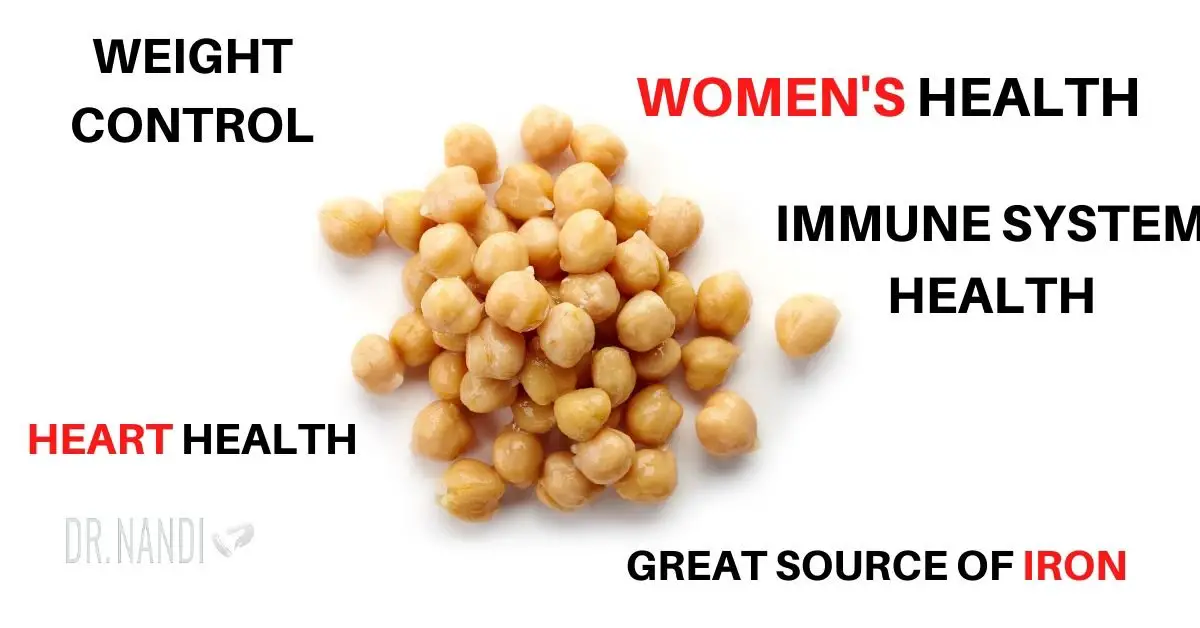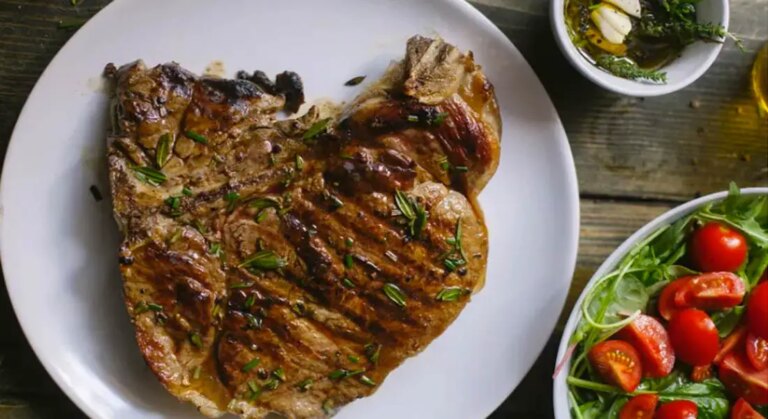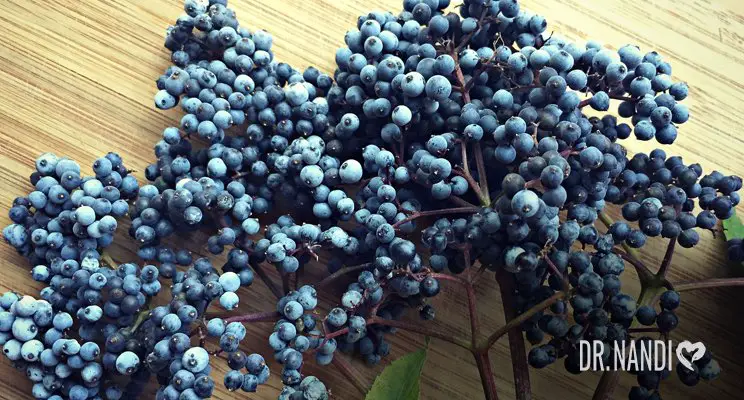You can call them chickpeas or garbanzo beans but make sure you add these legumes to your diet! They are as tasty as they are healthy. Chickpeas are one of the oldest cultivated foods in the Middle East and have been a favorite for centuries!
Chickpeas Nutrition Facts
Chickpeas are a rich source of several nutrients, including potassium and magnesium. They have a moderate quantity of calories (269 per cup, or 164 grams), with 67 percent coming from carbohydrates.
Chickpeas are high in fiber, protein, and numerous vitamins and minerals. Additionally, they contain dietary fiber and protein. A 1-cup (164-gram) portion of cooked chickpeas is high in the following nutrients:
- It has 269 calories
- 14.5 grams of protein
- 4 grams of fat
- 45 grams of carbohydrates
- 12.5 grams of fiber
- It has 74% of the Daily Value (DV) of Manganese
- It has 71% of the DV of Folate (vitamin B9)
- It has 64% of the DV of Copper
- It has 26% of the DV of Iron
- It has 23% of the DV of Zinc
- It has 22% of the DV of Phosphorus
- It has 19% of the DV of Magnesium
- It has 16% of the DV of Thiamine
- It has 13% of the DV of Vitamin B6
- It has 11% of the DV of Selenium
- It has 10% of the DV of Potassium
Health Benefits of Chickpeas
Below are the health benefits of chickpeas.
Chickpeas May Help You Manage Your Weight
Chickpeas are high in fiber and protein and low on the glycemic index. It is a potent combination that can help control weight. Nutritionists suggest that 1/2 cup of chickpeas daily can help control your hunger pangs. The fiber and protein will help keep you feeling full, resulting in fewer calories consumed.
Chickpeas Promote Heart Health
Research has found that people who regularly consume chickpeas can lower bad cholesterol (LDL) and total cholesterol. Chickpeas contain a fair amount of folate and magnesium. Studies show that folate can lower levels of the amino acid homocysteine and will strengthen blood vessels. Researchers believe that chickpeas help to decrease the risk of a heart attack.
Chickpeas are Good for Women’s Health
Found in chickpeas is a phytochemical called saponin which research shows acts as an antioxidant. Saponins help lower the risk of breast cancer and help to protect against osteoporosis. A bonus of the saponins is the minimization of hot flushes in post-menopausal women.
Chickpeas Promote a Healthy Immune System
Chickpeas are an excellent natural source of zinc and copper. Both zinc and copper are essential for the development and function of immune cells. Nutritionists have found that one cup of cooked chickpeas delivers roughly 30% of the Daily Value for copper and nearly 20% for zinc.
Chickpeas are an Excellent Source of Iron
One of the most common nutritional deficiencies globally is iron deficiency. It is a leading cause of anemia. Chickpeas contain high amounts of absorbable iron. Research shows that a cup of cooked chickpeas contains nearly 26% of the Daily Value of iron. Unlike other irons found in animal products, non-heme iron cannot be absorbed quickly by the body.
Chickpeas May Keep You Feeling Full
Chickpeas’ protein and fiber might help you keep your hunger in check. Protein and fiber work together to slow down digestion, which helps to make you fuller. Protein may also boost appetite-reducing hormones in the body.
In reality, the protein and fiber in chickpeas may help you eat less by lowering your calorie intake. A study of 12 women who consumed two separate meals found that the protein and fiber in chickpeas reduced appetite while also reducing calorie consumption. They ate 1.25 cups (200 grams) of chickpeas for breakfast, followed by two slices of white bread for lunch. After the chickpea meal, compared to the white bread meal, they significantly decreased hunger and calorie consumption.
According to another small study, those who ate pretzels and chickpea-based hummus for a midafternoon snack had a 70% reduction in appetite and a 30% increase in fullness. All the same, more study is needed on chickpeas and appetite control.
Chickpeas are Rich in Plant Protein
As a plant-based protein, chickpeas are an ideal meal for vegetarians. A 1-cup (164-gram) portion has about 14.5 grams of protein, comparable to the protein content of meals like black beans and lentils.
Chickpeas may aid in feeling fuller and keeping your appetite in check. Protein is also known to promote weight loss, build bones, and enhance strength. In comparison to other legume varieties, chickpeas contain more high-quality protein. That’s because chickpeas don’t include methionine, which is one of the essential amino acids.
Because they are a poor protein source, they aren’t reliable. Combine chickpeas with quinoa, a whole grain that contains methionine, to ensure you get all of the amino acids.
Chickpeas May Support Healthy Blood Sugar Level
There are several ways in which chickpeas can help you manage your blood sugar levels. Their low glycemic index (GI) indicates how rapidly your blood sugar rises after eating a food. Diets that include many low-GI meals have been found to aid in blood glucose control.
Fiber and protein from chickpeas may help lower blood sugar levels. Fiber delays the absorption of carbohydrates, causing a more constant increase in blood sugar levels rather than an abrupt spike. Eating high-protein meals might also assist in keeping your blood sugar levels healthy.
Also, chickpeas are high in fiber, which may lower diabetes and heart disease risks. Their ability to lower blood sugar levels is one explanation for these benefits.
Chickpeas are Good for Digestion
Chickpeas are high in fiber, which has several advantages for digestive health. The bulk of the fiber in chickpeas is soluble, meaning it dissolves in water to form a gel-like substance in your stomach.
Soluble fiber may help boost the number of healthy microorganisms in your gut and stop unhealthy bacteria from developing. Chickpeas may help prevent digestive diseases like IBS and colorectal cancer, according to one study. Chickpeas may also aid in maintaining gastrointestinal health by improving bowel movement frequency, ease, and consistency, according to one review.
Chickpeas May Help Prevent Heart Disease
The magnesium and potassium found in chickpeas may support heart health by lowering blood pressure, a significant risk factor for heart disease.
Finally, chickpeas soluble fiber appears to lower triglycerides and bad (LDL) cholesterol, raising heart disease risk. According to a meta-analysis of 26 research articles, eating at least one serving per day of legumes, such as chickpeas, can help significantly reduce LDL (bad) cholesterol.
Chickpeas May Help Prevent Cancer
According to some studies, eating chickpeas may help you prevent various sorts of cancer. This legume boosts your body’s production of butyrate, a fatty acid that can lower inflammation in colon cells and possibly lower your risk of colon cancer.
Also high in saponins, chickpeas prevent several cancers through their plant chemicals. Saponins have also been investigated for their ability to stop tumor growth. Chickpeas are an excellent source of B vitamins, which may help decrease your risk of cancer by lowering blood sugar levels.
Chickpeas May Help Prevent Type 2 Diabetes
Chickpeas have been found to help prevent and treat diabetes because of their blood-sugar-regulating abilities. Chickpeas’ fiber and protein aid in the prevention of blood sugar rises after eating, which is critical in diabetes management.
Their low glycemic index (GI) makes them ideal for people with diabetes since they are unlikely to spike blood sugar levels. Finally, they contain several compounds discovered to lower the incidence of type 2 diabetes, including magnesium and B vitamins. Their zinc content might also aid in its treatment.
Chickpeas May Promote Brain Health
As a high-fiber food, chickpeas may support brain function and mental health due to their nutrient profile. It is in part because they contain enough choline to complement your diet.
Choline is a B-vitamin critical for forming specific neurotransmitters, which act as chemical messengers for your body’s nerve cells. While choline is crucial for newborns, its function in adult health is poorly understood.
Chickpeas also provide a significant amount of magnesium, which is critical for nerve health. Furthermore, in human studies, several nutrients found in these legumes, including magnesium, selenium, and zinc, have been linked to depression and anxiety prevention. Nonetheless, additional research is needed on humans.
Chickpeas May Help Prevent Hair Loss
High protein content in chickpeas can help prevent hair loss. Chickpeas also have manganese, which may improve the strength of your hair. Manganese deficiency may cause slower hair growth as well. Chickpeas are high in Vitamin A and zinc, both of which aid in the prevention of dandruff. You may combine 6 tablespoons of mashed chickpeas with water and apply it to your scalp. Then rinse as usual after 15 minutes. Zinc in chickpeas might help prevent hair loss. Copper in them may aid in hair regeneration (in people who lost their hair due to medical treatments like chemotherapy).
Chickpeas May Help Prevent Iron Deficiency
Chickpeas are high in iron, with approximately 26% of the Daily Value per cup (164 grams). The presence of iron is essential for the production of red blood cells, brain development, muscle metabolism, and physical development.
Deficiencies in this micronutrient can hinder your body’s production of normal red blood cells. Iron deficiency causes fatigue and shortness of breath.
Chickpeas are an excellent alternative for vegetarians and vegans who may be at risk of iron deficiency since they are high in protein and fiber. Chickpeas also include vitamin C, which may assist your body’s iron absorption.
Chickpeas are Very Easy to Add to Your Diet
Chickpeas are simple to incorporate into your eating plan. They’re reasonably priced and readily available in both canned and dry forms. Vegetarian and vegan diets are a great alternative to meat because of their high protein content.
There are also many ways to use chickpeas, including in salads, soups, and sandwiches. They’re also the basis for hummus, a dish made with mashed chickpeas, tahini paste (sesame flavor preferred), olive oil, lemon juice, salt, and garlic.
Finally, you may roast chickpeas as a delicious and crunchy snack or use them in veggie burgers and tacos.
References:
- FoodData Central (usda.gov)
- High Fiber Diet – StatPearls – NCBI Bookshelf (nih.gov)
- Effect of high-protein breakfast meal on within-day appetite hormones: Peptide YY, glucagon like peptide-1 in adults – ScienceDirect
- Increased Dietary Protein as a Dietary Strategy to Prevent and/or Treat Obesity – PMC (nih.gov)
- The role of protein in weight loss and maintenance – PubMed (nih.gov)
- The Role of Fiber in Energy Balance – PMC (nih.gov)
- Clinical Evidence and Mechanisms of High-Protein Diet-Induced Weight Loss – PMC (nih.gov)
- Chickpeas suppress postprandial blood glucose concentration, and appetite and reduce energy intake at the next meal – PubMed (nih.gov)
- An Afternoon Hummus Snack Affects Diet Quality, Appetite, and Glycemic Control in Healthy Adults – PubMed (nih.gov)
- Chickpea (Cicer arietinum L.) protein as a prospective plant‐based ingredient: a review – Boukid – 2021 – International Journal of Food Science & Technology – Wiley Online Library
- Dietary protein intake and human health – PubMed (nih.gov)
- Protein and bone health across the lifespan – PubMed (nih.gov)
- Food Products as Sources of Protein and Amino Acids—The Case of Poland – PMC (nih.gov)
- The Nutritional Value and Health Benefits of Chickpeas and Hummus – PMC (nih.gov)
- Effects of dietary pulse consumption on body weight: a systematic review and meta-analysis of randomized controlled trials – PubMed (nih.gov)
- Low-glycemic index diets as an intervention for diabetes: a systematic review and meta-analysis – PubMed (nih.gov)
- Evaluation of the Effect of Macronutrients Combination on Blood Sugar Levels in Healthy Individuals – PubMed (nih.gov)
- Chickpeas may influence fatty acid and fiber intake in an ad libitum diet, leading to small improvements in serum lipid profile and glycemic control – PubMed (nih.gov)
- Biological Activities of Chickpea in Human Health (Cicer arietinum L.). A Review – PubMed (nih.gov)
- Should we eat more potassium to better control blood pressure in hypertension? – PubMed (nih.gov)



















